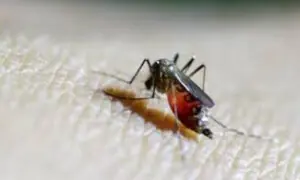Pakistan increases surveillance for suspected monkeypox cases
3 min readISLAMABAD: The government has decided to increase surveillance in the country in view of the WHO’s statement declaring the monkeypox outbreak a global health emergency, the Minister for Health Abdul Qadir Patel said on Sunday.
“All the national and provincial health authorities have been advised to remain on high alert for any suspected case of monkeypox as the government has started taking effective measures to prevent the disease,” the minister said in a statement.
He said that the recommendations on the basis of international health regulations will be fully implemented in the country. The government would continue its work as per the guidelines of WHO, he added.
The minister said that instructions had been issued to stakeholders, especially border health services of the Central Health Establishment for strict monitoring at all points of entry in the country.
He said that an effective monitoring mechanism had been developed on a scientific basis at all points of entry. The screening of all incoming passengers will be ensured particularly passengers coming from African countries, he added.
Patel said that instructions had also been issued for strong coordination among concerned organizations while steps were being taken for awareness of the public. The role of health workers was important in this regard, he added.
According to the spokesperson of the Ministry of National Health Services, the situation is being closely monitored by the health authorities and as per the report, no case of monkeypox has yet been diagnosed in Pakistan.
He said that the Minister for Health had also directed the National Command and Operation Centre (NCOC) to ensure regular monitoring of the monkeypox situation in the country along with that of Covid-19.
Monkeypox is a rare viral zoonotic disease that is caused by infection with the monkeypox virus. Although the natural reservoir of monkeypox remains unknown, African rodents and non-human primates like monkeys may harbor the virus and infect people.
The patient develops a rash within one to three days after the appearance of fever, often beginning on the face and then spreading to other parts of the body. Other symptoms include headache, muscle aches, exhaustion, and lymphadenopathy.
The incubation period is usually seven to 14 days but can range from five to 21 days. The illness typically lasts for two to four weeks.
The transmission occurs via contact with an infected animal, human, or materials contaminated with the virus. The virus enters the body through broken skin, respiratory tract, or mucous membranes like eyes, nose, or mouth.
Other human-to-human methods of transmission include direct or indirect contact with body fluids, lesion materials, or contaminated clothing or linens.
Danish company develops monkeypox vaccine
Danish biotechnology company Bavarian Nordic (BAVA.CO) said on Monday the European Commission had given permission for its Imvanex vaccine to be marketed as protection against monkeypox, as recommended last week by the European Medicines Agency (EMA).
“The availability of an approved vaccine can significantly improve nations’ readiness to fight emerging diseases, but only through investments and structured planning of the biological preparedness,” Bavarian Chief Executive Paul Chaplin said.
Bavarian’s vaccine, the only one to have won approval for the prevention of monkeypox disease in the United States and Canada, has in the EU so far only been approved to treat smallpox.
But the company has supplied the vaccine to several EU countries during the current monkeypox outbreak for what is known as “off-label” use.
The approval is valid in all European Union Member States as well as in Iceland, Liechtenstein, and Norway, Bavarian Nordic said in a statement.
The development of Imvanex was made possible through significant investments from the U.S. government during the past two decades, the company added.
For the latest news, follow us on Twitter @Aaj_Urdu. We are also on Facebook, Instagram and YouTube.




























Comments are closed on this story.